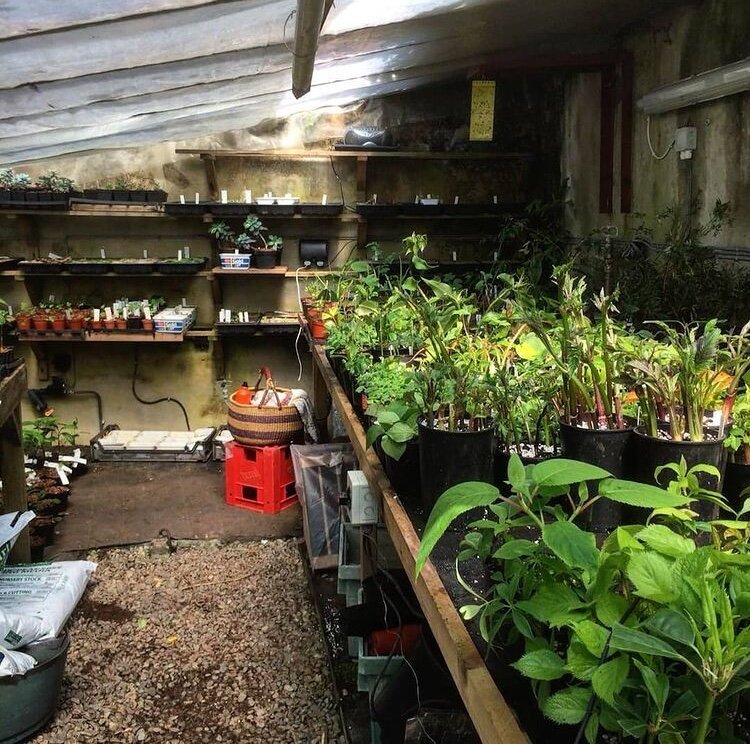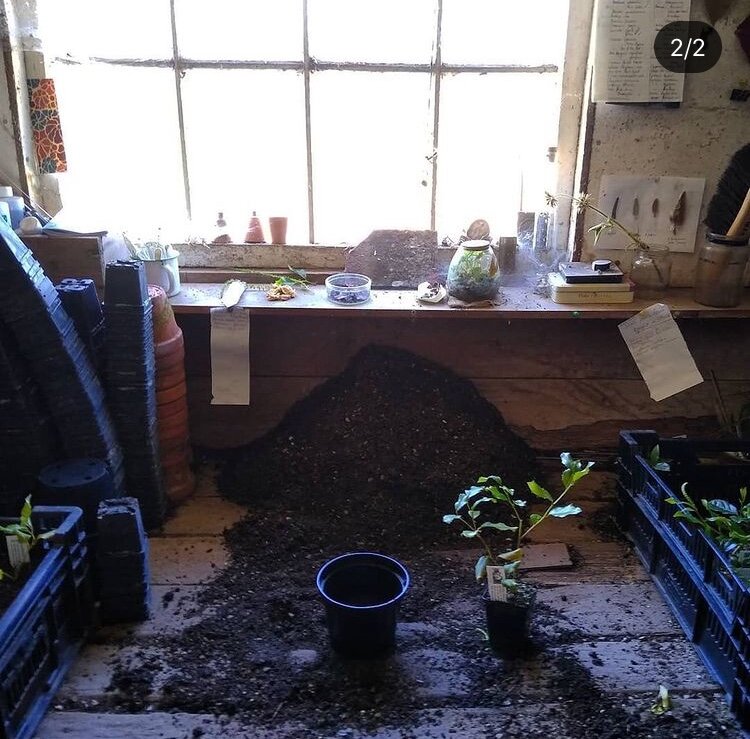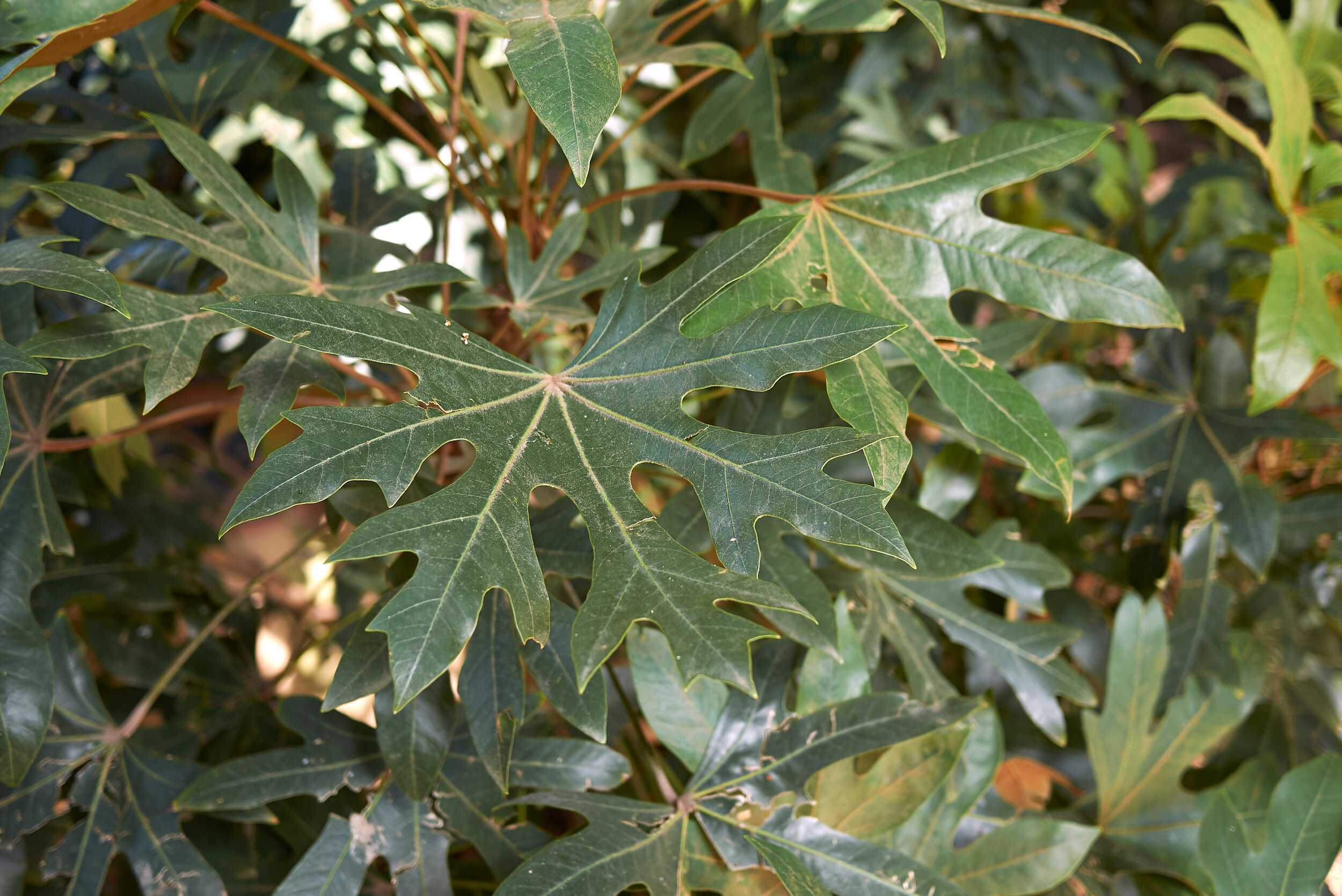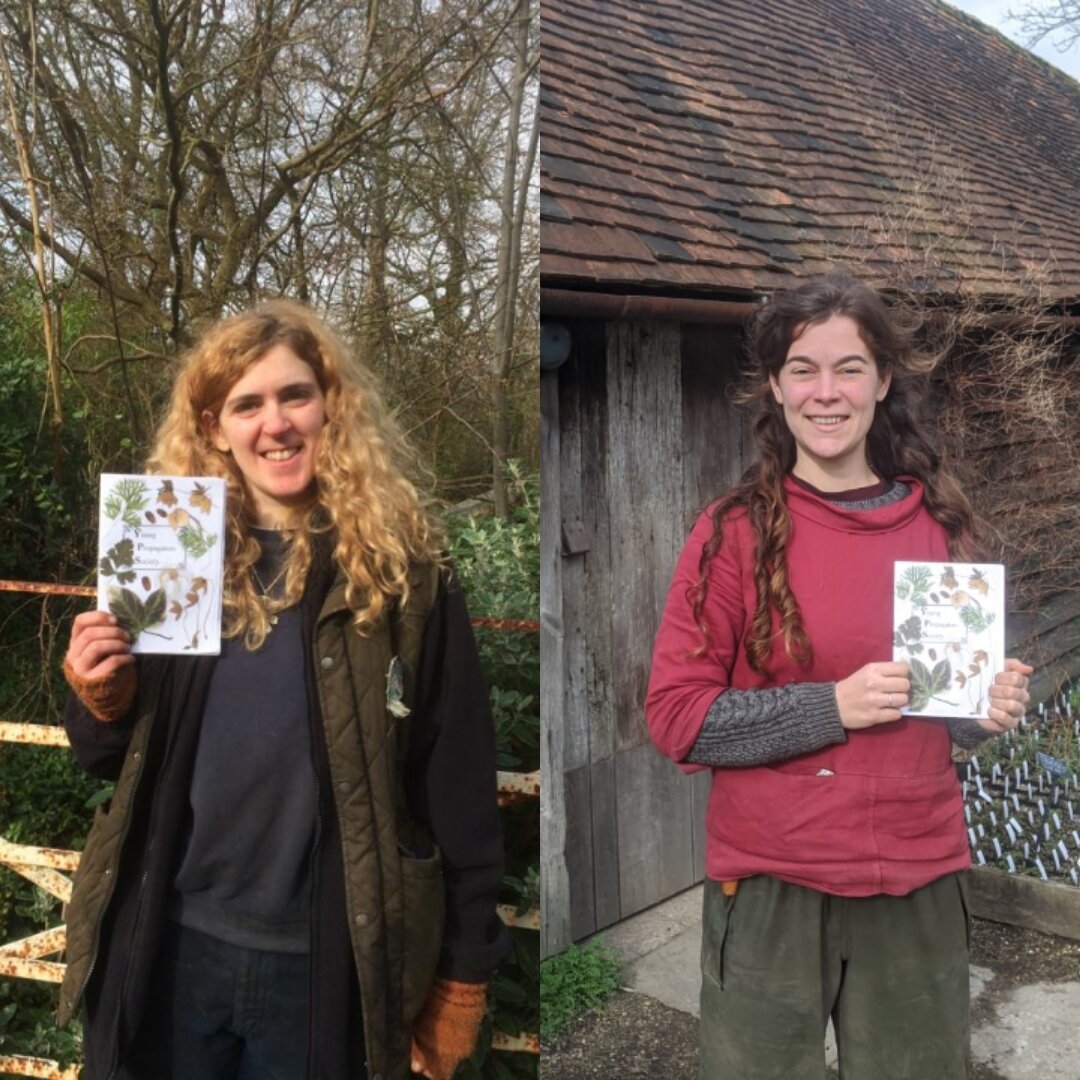One of the most satisfying things about owning plants is the ability to be able to grow your plant collection for free via propagation. It makes for a brilliant hobby, but more than that it can also be an incredibly rewarding career. There are two young propagators that are spreading the word about all things propagation and paving the way for others to join this brilliant industry. We talk to Ellie Pay and Sophie Cook, the founders of the Young Propagators Society all about their careers and their great propagation Zine.
Why Propagation?
E.P I am just so fascinated by the different ways plants grow. Each time I come across a seed that is completely different to the last it reminds me of how each living thing needs to be incredibly specific to their habitat.
S.C For me it satisfies both my science obsession and having to be very organised about my work. Also I'm completely addicted to that feeling of being able to make more of a plant from a scrap of material (in some cases!)
Have you always had a love of plants? Explain a little about what led you to becoming propagators.
E.P I’ve always loved being in nature and have been curious about the little things I find which make me ask questions about how they grow and adapt, which lead me onto becoming a gardener which lead me onto propagation.
S.C I was a bit feral as a child and spent most of my time outside, I was fortunate to live in a rural area in a time when kids were able to wander around. I didn't know that being a gardener could be a career choice, and then a propagator within that. It was when I went to volunteer at Great Dixter and did a bit of pricking out* that I realised how much I enjoyed propagation.
* pricking out = separating out seedlings growing together and transferring them into their own plugs or pots of potting mix to aid development, this can be done once seedlings are strong enough to handle.
Can you describe a usual day-in-the-life of a propagator?
E.P Check on your most needy plants first thing in the morning, usually cuttings, clean them (take away dead leaves) then take more cuttings, collect seeds, clean them, sow fresh, prick out, pot up, walk around for future seed check, research.
S.C Pretty much the same as Ellie. Check the heat benches, water the double frame holding the cuttings if necessary at this time of year. Then get on with my cuttings list, seed clean/sow and do ad hoc projects for the upkeep of the nursery.
The Young Propagators Society blog
Lots of advice and tutorials on propagation
Including:
An insight into Begonia Leaf cuttings
A how-to on maximising propagation material from one stock plant
How to propagating often slow-growing Haworthias
Do you have a favourite plant to propagate? What makes it so special?
E.P I really love propagating Schefflera and Oreopanax as I know the tiny plants I care for turn into big beautiful trees that I’ve never seen in the wild.
S.C I'm enjoying propagating plants from seed that require stratification*, experimenting with what pattern gives the best germination.
*stratification is the practice of subjecting seeds to cold temperatures within a greenhouse to simulate the natural germination cycle it would experience in the ground over winter, thus kick-starting the process of germination and growth.
Who has been your biggest inspiration or influence in the plant world, and why?
E.P So many people. Each person I work with I can learn from and so I gain knowledge and inspiration cumulatively from them all. But I would have to say some special people are Michael Morphy; Great Dixter Nursery manager and Marina Christopher; Phoenix Perennials nursery
S.C. I tend to look towards the people that are ecologists or entomologists. I think there's a great opportunity for more crossover between these disciplines and horticulture.
You have created a society for propagators, do you have to be a professional propagator to become a member, or can a hobbyist propagator be involved?
As soon as someone requests a zine, follows us on Instagram or is on the Facebook group they are a member. We hope this community of propagators covers novice to veteran as it’s the members that create the content.
Where did the idea for the zine come from and who is it for?
We put together a quarterly zine with contributions from our members, this gives them a place to tell their story, share knowledge and create discussions. We plan on hosting workshops and a symposium where the members can learn and meet each other.
We spoke about creating a society to encourage propagation and Ellie always wanted to produce a zine. So it seemed the natural thing to produce one as the main output of the society. We originally made it as something that we ourselves would want to read as we felt like something like this was missing from the industry. But it's really for anyone who wants to learn about how to make more plants.
The zine is a lovely hand-written, illustrated and almost 'collaged' piece of work, can you explain a little of the process?
We do a call-out for contributions and organise contributions with people we would love featured, then with the mix of articles, interviews and art we stick it together in an 8 page A4 page folded book. This original gets sent to the printers where they scan the original and print the zine we send out to our members.
Young Propagators Society free quarterly zine
The zine is free of charge for anyone who wants it, making it accessible to as many people as possible. However the zine is not free for you to create and publish, tell us more….
We have a donation page which the members very generously donate to which covers our costs, this means the people who can pay at the time, can pay for people who can’t and that might change next time round. We have also recently received generous sponsorship from a few individuals and organisations which means we can afford to hold a symposium when the time is right.
Do you have a long-term or ultimate goal with the zine?
To create a beautiful network of people who are interested in plants. Some of these people might know very little, some might know an awful lot, but it would be great to see them all work together to share all the knowledge out there and strengthen the propagation industry in the UK.
We are so encouraged by the enthusiasm and passion that Ellie and Sophie have, to make propagation knowledge accessible to all.
Useful links for how to access a career in horticulture
If you are inspired to look into horticulture as a career, you might find these links below useful.
Firstly, for those who are looking for experience, bursaries or grants to help you enter the world of horticulture see this link on the Chartered Institute of Horticulture website.
The Young Propagators Society also have compiled a page on their website with links to horticulture jobs, including traineeships and scholarships.
There is also a brilliant page on the RHS website all about community gardening projects and how you can set up a community garden project in your area and how to get funding for this.









